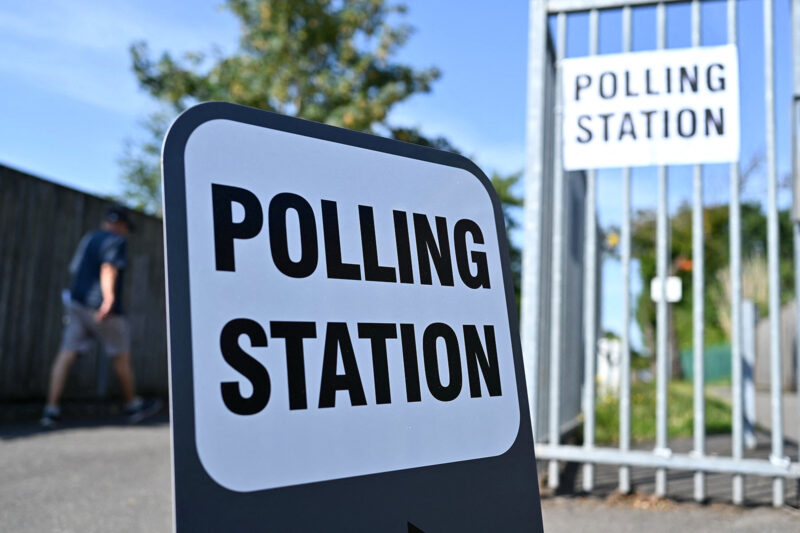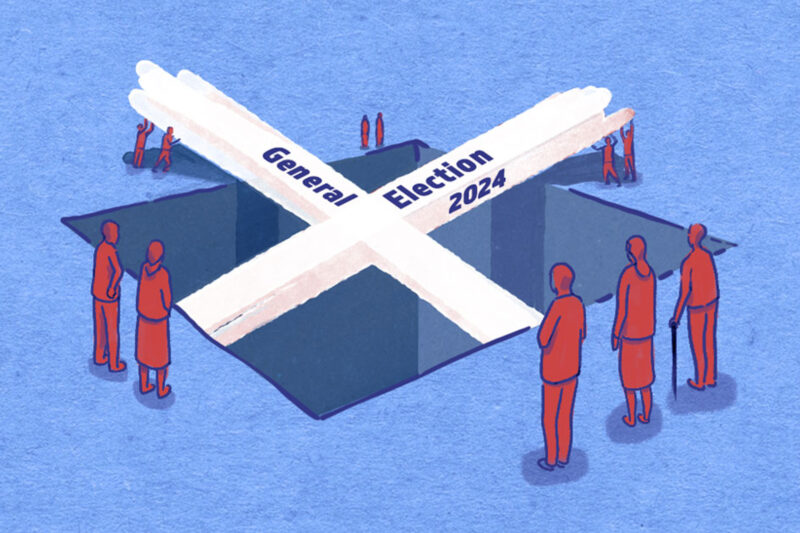Reform’s election surge has left some Labour MPs desperate to push rightwards
Results in Runcorn and Lincolnshire have given Labour and the Tories a huge headache, while Nigel Farage’s party now faces a new kind of test

Labour MPs have been privately expressing their deepening anxiety over the rise of Reform UK for months. That concern, previously limited to private conversation, has now exploded into political reality following the local election results.
Nigel Farage, never one to undersell his own movement, recently told me he believed Reform posed as much of a threat to Labour as to the Conservatives and, after Reform’s huge gains on Thursday and Friday, it’s hard to argue with him.
Reform UK clinched Thursday’s Runcorn and Helsby parliamentary by-election by just six votes — a wafer-thin margin, but a politically thunderous result. In so doing, it overturned a Labour majority of nearly 15,000 in a constituency that, until now, had been considered one of the party’s strongholds. Labour has reacted by saying that “by-elections are always difficult for the party in government and the events which led to this one being called made it even harder” — referring to the fact that the seat’s previous MP, Mike Amesbury, was convicted of assaulting a constituent — but that doesn’t wash away the underlying warning signs.
This wasn’t just any Labour seat. Runcorn and Helsby was the 49th safest of the 411 that Labour won less than a year ago. To lose it on a swing of this scale is not just a bad night — it’s a flashing red light. Across the country at the last general election Reform came second in 88 Labour-held constituencies. If the swing seen in Runcorn were replicated at the next general election, Farage’s party would claim most of those seats.
Behind the scenes, Labour MPs know it’s a potential problem. I’ve spoken to several MPs in vulnerable constituencies in recent months who have been talking directly to Downing Street for some time, hoping to shape policy in a way that speaks directly to voters flirting with the idea of supporting Reform. The pressure on Labour’s leadership will now intensify, and I’m told we can expect announcements on immigration, defence, and industrial strategy in the near future.
But if Labour is worried, the Conservatives are in no mood to celebrate either. Tory council seats have been falling to Reform across the country, often in areas long considered blue heartlands. The losses point to a fundamental fracturing of the right. Once, the Tories could rely on the threat of a Labour government to consolidate support. That threat no longer appears to hold sway and Reform is looking increasingly viable in its own right. Voters I have spoken to see both main parties as offering more of the same, and evidently many are no longer afraid to cast their ballots elsewhere.
In North Lincolnshire, where I’ve been reporting for ITV News, the shift in mood is unmistakable. As we were setting up for a live broadcast, a car sped past and a man leaned out the window shouting “Reform!” while fist pumping the air. A performative moment, perhaps, but emblematic of a broader surge in enthusiasm. Over the past two days, speaking with voters in Grimsby and surrounding areas, I’ve heard a clear and consistent message: people are hungry for change.
One couple told me they had voted Conservative all their lives, but now felt their former party was “too weak” on the issues that matter to them, namely immigration. Reform, they said, gave them hope. That sentiment wasn’t an outlier: the majority of voters I spoke to echoed those thoughts. Many in the area had cast their ballot for Andrea Jenkyns, the former Conservative minister who defected to Reform, in the race to become the first mayor of Greater Lincolnshire.
Jenkyns has been victorious and the result is more than symbolic. She becomes Reform’s first regional mayor and will now manage a £24m budget and oversee decisions on transport, regeneration and the local economy.
For Reform UK, it’s a new kind of test — electoral insurgencies are one thing but governing is another. As one member of the Tory shadow cabinet put it to me: “Let’s see how they get on when there’s actual work to do.”
Still, this election wasn’t only about the red-blue-Reform dynamic. In parts of rural England, another quiet revolution is unfolding: the Liberal Democrats are making gains in areas once thought safely Conservative. It means the Tories are now bleeding support from both flanks, and it’s making the business of defining their future incredibly difficult. Who do they pitch to: the centrists drifting Lib Dem, or the angry base defecting to Reform?
For decades, British politics has been defined by a largely stable two-party system. What we’re seeing now feels like a full-blown realignment. Reform’s success in Runcorn and elsewhere may not yet be a revolution, but it is certainly a rupture.
Shehab Khan is an award-winning presenter and political correspondent for ITV News.
 Newsletter
Newsletter













